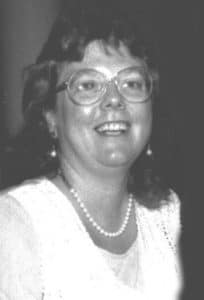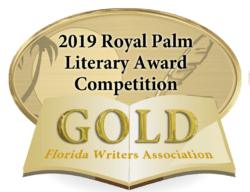
Many “absolutes” float about the writing world, telling writers they “must” do this or “must not” do that. One poignant piece of advice from author Marie Brack—don’t worry about ’em. She’s an excellent person to get writing advice from, after penning her own craft book and winning multiple awards. Her novella Cold Case won Gold in the Novella category in the 2019 Royal Palm Literary Awards. Marie talks top tips, the development of her mystery series, and her newest project on this week’s RPLA showcase.
Marie’s Writing Journey
I’ve had a book-a-day reading habit since I was five years old. All that reading subtly taught my brain how writing flows. Most of my life I only occasionally wrote fiction or poetry. Work and family took up most of my energies.
Recently, as a retired widow, I found I had plenty of time for writing. I started out with nonfiction. Frugal Living for the 21st Century: Adventures in Using Your Money Wisely is the fruit of my hands-on and digital research during my years below the poverty line after my husband died.
When I started attending a writers group, they were all writing fiction, so I tried it too. At first the results were mediocre. I researched all aspects of fiction writing and ended up with a nonfiction book, My Writer’s Sampler: Exercises in Learning to Write Fiction, which took second place in RPLA 2018. Parts of it appear in my writing blog at https://sampler1blog.wordpress.com. The stories in Sampler illustrate the various elements of fiction writing, so I had the chance to stretch, writing in as many different genres, styles, voices, and points of view as I could.
One of the short stories in Sampler, “Corpse Flower,” is a police procedural, which I expanded to novella length as Further Investigation. It took third place in RPLA in 2017. That was the beginning of my Marshview mystery series, now five books long. Cold Case and Ten Thirteen won first and third in the novella category in 2019. Alas, Flight Risk has flunked out two years in a row. I hope for good results for Sole Beneficiary next year.
I have so many ideas for future Marshview stories, and it takes me so long to write a novella, that I’m starting a collection of short mysteries. I love all the ideas I have, and surely won’t live a hundred years to be able to write a hundred novellas!
The Winning Entry, Cold Case
Logline: Deputy Sam Arnold searches for the truth about the disappearance and death of an old woman whose body was found in a freezer years later.
Each of my mysteries is inspired by a two-word title, a phrase relating to crime or to the law. The phrase Cold Case made me think of long-unsolved crime, but also of cold, as in a freezer. So naturally the body was found in a corroded old freezer no one had thought about in years. Sheriff’s Deputy Sam Arnold dove deep into the past, finding no lack of suspects including a long-forgotten family black sheep, the ailing husband, the distant daughter, the nearby grandson and his wife, and assorted neighbors and church members.
The stories are set in Marshview, Florida, an imaginary small town floating gently in the blank area on the map between Daytona Beach and Orlando. The town has an eccentric shopping area cobbled together from storefronts and large houses that survived the big fire. Pat’s Diner is where the locals eat, and where Sam goes to soak up the gossip and gauge the mood of his town. The Marshview Viewer is an online new source with an unusual respect for truth and verifying news stories. Sam works with a talented and diverse group of deputies coping with a wide range of crimes, motives, methods, and quirks of human nature.
“Dear Me,” (Advice to My Younger Writing Self)
First, beware of absolutes:
Sometimes wise advice to minimize something gets morphed into a total prohibition. Yes, Stephen King did say the road to hell is paved with adverbs. On the other hand, he uses them. Sparingly, yes, and only when they add to the reader’s understanding of the scene. The real message is to look for a stronger verb. In the rare case where you can’t find one, then an adverb comes to your aid.
Some writing advisers say you must write every day. There may be people that works for, but it’s not universal. I write when I feel like it and am doing just fine. It helps that I’m retired and not trying to start a full-time career as a writer.
Don’t let the supposed rules that people bandy about stifle your unique voice. If your fiction novel has catchy chapter titles, go ahead and have a table of contents even if “they” say novels don’t have them. If your style includes long sentences, some will say they should be shorter. The real question is, is the meaning clear and the flow smooth? The “rule” against passive sentence doesn’t mean you must have zero passive sentences. Some of them are truly necessary.
Second, don’t give up. My normal pattern would have been to abandon any new effort when I wasn’t good at it right away, but this time I persisted. Sure, there’s some talent involved, but writing is a craft whose elements can be learned. Write, read, read about writing, write, study, write, research, and write. Find new skills and practice them.
Third, connect with other writers, whether in real life or online. Interaction with other writers brings new ideas and fresh insights. Naturally you want to take other peoples’ advice with a grain of salt, and do research to confirm information they share.
Other Works by Marie
My nonfiction works are Frugal Living for the 21st Century: Adventures in Using Your Money Wisely and My Writer’s Sampler: Exercises in Learning to Write Fiction.
The Marshview mystery series:
Further Investigation
Flight Risk
Cold Case
Ten-Thirteen
Sole Beneficiary
Recently I branched out into a full-length novel written in the first person, present tense, from the point of view of a recently deceased fake medium suddenly faced with true communication with her fellow spirits. Madame Zenayda’s Afterlife Adventures should be published sometime this year.
I’m the only Marie Brack on Amazon, so my books are easy to find: www.amazon.com/author/mariebrack
More about RPLA
The Royal Palm Literary Awards competition is a service of the Florida Writers Association established to recognize excellence in members’ published and unpublished works while providing objective and constructive written assessments for all entrants. Judges include literary agents, publishers, film producers, current or retired professors, teachers, librarians, editors, bestselling and award-winning authors, and journalists from across the nation. Entries are scored against the criteria set by RPLA using rubrics tailored to each genre. Winners are announced at the annual FWA conference during the RPLA awards banquet. To learn more about RPLA, click here for the guidelines.


Sharon K. Connell
I’m with Marie. And thank you for bringing out this important piece of information to writers. “Beware of Absolutes.”
We’ve been bombarded by rules to the point that our writing can sometimes become stilted. I’ve heard from readers in my Facebook Writers & Readers Group Forum when I’ve asked if certain rules of writing bother them while they’re reading. Most of the “rules” we writers are given, and then brake them, don’t bother the reader. They simply want a good story they can dive into and view with their mind’s eye. If it has adverbs, so what? If it has the word “that” or “walk” or a few extra “could’s,” reader who aren’t writers themselves could care less, as long as the story grabs their attention and holds it.
Yes, we can overdo certain words, and have a new character slip into the story after the “deadline” that the “experts” have set for us. But if those precious readers are still enjoying the story, that’s what really matters, isn’t it? And who set up those rules anyway?
When I’m writing, I run my chapters through three different editing programs. When the program pulls up something it thinks I need to change, I read over the entire paragraph. Then I decide if I want to change it or not. I try the sentence out both ways. Then I chose which sounds more natural. My dialogues are written the way people talk, so the reader can identify more with the character. My narrative is different. I like to keep that on a more professional level so the reader knows when I’m doing the talking instead of the character, even if I don’t do a lot of talking myself. LOL My goal is to have the reader enjoy the story as much as if they were watching it in a movie.
Yes, beware the absolutes.
Arielle Haughee
That’s an excellent point–is the reader going to enjoy the story? That is the most important part. Along with the writer enjoying the process!
Chris Holmes
I have the privilege of being in the same writers group with Marie. I always look forward to her submissions and often ask her advice on some of the technical aspects of writing. My dog-eared copy of her My Writer’s Sampler: Exercises in Learning to Write Fiction is always close to my computer. I love rule-breakers – especially when they do it so well!
Arielle Haughee
She is truly talented and such a wonderful resource for writers!